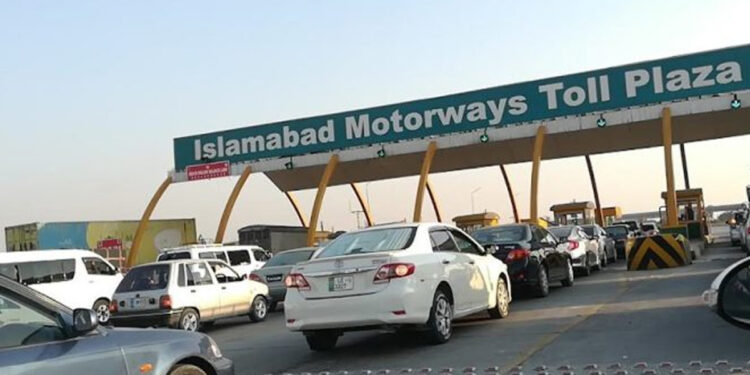In a move to tackle rising air pollution, particularly smog, in Punjab, the provincial government has introduced a new requirement for M-Tag issuance. This step is aimed at curbing the worsening air quality in cities like Lahore, which has been grappling with hazardous pollution levels.
New M-Tag Requirement for Vehicle Owners
As part of the new initiative, the Punjab government has decided that M-Tags will no longer be issued to vehicles unless they meet certain criteria. Specifically, all vehicle owners will need to obtain a fitness certificate before applying for an M-Tag. The fitness certificate will have to be submitted along with the vehicle’s registration book and license when requesting an M-Tag for motorway use.
The government’s move comes in response to the increasing severity of air pollution in the region. Lahore, in particular, has seen a significant spike in smog, with the Air Quality Index (AQI) reaching hazardous levels. Currently, Lahore’s AQI stands at a concerning 190, indicating unhealthy air quality, with PM2.5 levels being 22.2 times higher than the WHO’s recommended annual air quality limit.
Restrictions for Older Vehicles
Another significant change is the restriction on older vehicles. Starting this year, any vehicle older than 30 years will be prohibited from using motorways between October and January—the period when smog levels tend to be the highest. This move is designed to reduce the number of high-emission vehicles on the road during peak pollution months.
The provincial transport minister, Bilal Akbar Khan, emphasized that these measures are essential to reduce the air pollution in the region, particularly in cities like Lahore, which regularly experience severe smog episodes. Initially, the new rules will be enforced on government vehicles, but it is expected that private vehicles will also need to comply in the coming months.
Why These Changes Are Necessary
Punjab, especially Lahore, has been facing record-breaking smog in recent years, with the Air Quality Index frequently reaching unhealthy and hazardous levels. PM2.5 (particulate matter) concentrations have been alarmingly high, directly impacting public health. By introducing stricter regulations on vehicle emissions and enforcing better vehicle fitness standards, the government aims to reduce pollutants that contribute to smog, thus improving the overall air quality and protecting public health.
Key Points of the New M-Tag Policy:
- M-Tag will only be issued to vehicles with a valid fitness certificate.
- Vehicle owners must submit fitness certificates along with registration and license copies.
- Vehicles older than 30 years will be restricted from using motorways during peak smog season (October to January).
- Initial implementation will apply to government vehicles, with private vehicles likely to follow.
Conclusion
The introduction of these measures underscores the Punjab government’s commitment to improving air quality and reducing smog. By tightening vehicle regulations and encouraging better maintenance, the government hopes to create a cleaner, healthier environment for residents of Punjab. Vehicle owners should begin preparing for these changes by ensuring their vehicles are fit for the road and acquiring the necessary documentation to comply with the new M-Tag requirements.









